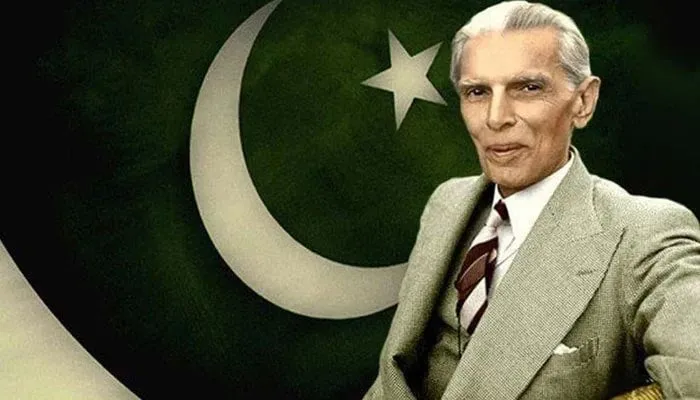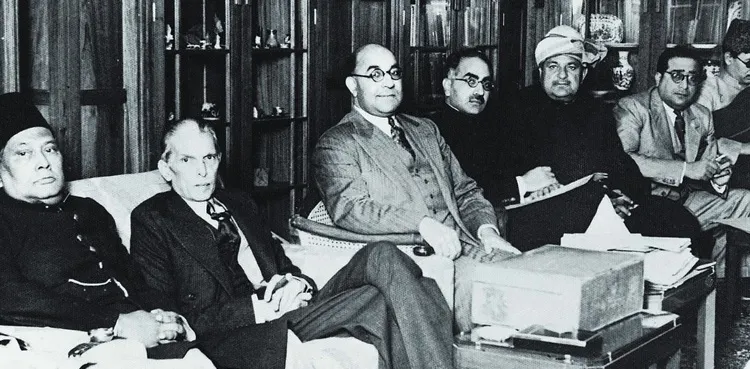Quaid-e-Azam Muhammad Ali Jinnah is that name which came out from history pages and is known to be father of Pakistan along with the very first governor-general of the country. It had been assumed that as a mighty leader of the freedom movement, he from early times of thinking of it had visualized an independent homeland of Muslims in South Asia. His commitment, foresight, and perseverance made him not only construct Pakistan but also immortalize his determination and personality.
He was born on 25 December 1876 in Karachi, to a distinguished mercantile family. His father, Jinnah Bhai Poonja, had been very successful as a trader. He impressed into Jinnah’s makeup a balance of old-fashioned traditionalism and forward thinking. This gave the seeds for determination in changing his people’s lives for better.

Education and Path to Leadership
Jinnah started from Sindh Madressatul Islam. Then he shifted to Christian Missionary Society High School in Karachi. He had sent Jinnah to England for his law studies at Lincoln’s Inn; this is the oldest institution in that country to hold the law.
He stayed in England at that time more democratic and had to face the western culture and political ideals which have developed his vision of government. Now, these ideals excited him, and he wished to build a country based on justice, equality, and liberty.

Early Political Career in Congress
Actually, it would be possible to claim Jinnah’s political life actually commenced when he contacted Indian National Congress during an early point of the 20th century. It actually did seem perfectly practicable having Hindu-Musalman unity, therefore he struggled working very hard toward Indian attainment of freedom from Britain.
But the passing of time was making him more and more infuriated with the approach by the Congress because they were not even considering Muslim interests in their thoughts. In realization that step by step, they were being fragmented then he needed a wider platform to represent the Sub-Continent aspirations for the Muslims.
Emergence and End All India Muslim League
He was elected into the All-India Muslim League in 1913. It was a landmark day, because by this time, he became one of those influential politicians who would demand their rights and eventually independence for the Muslims. He emerged to be a very best representative of Muslim masses of India because of his excellent efforts.
Lahore Resolution of 1940: It was the landmark resolution of the Pakistan Movement, which ultimately paved its way for the emergence of Pakistan.
The Fourteen Points of Jinnah (1929): It was an all-inclusive manifesto that comprised both political and sociopolitical dimensions. For, on one hand, the document first and foremost postulated rights and privileges for Muslims in socio-political considerations and federal protection; but, on the other hand, it provided for political independence.

Pakistan Movement: From Visions to Reality
Probably Jinnah was the most successful leader in the Pakistan Movement purely and simply due to this experience, thoughtful planning, and strong commitment that he possessed. He was a person who could raise millions and tackle the complexities of discussion by the British officials with their own leaders. It was only he who could give the required unity and hope in Muslims that no other human could do.
Indeed, there was that place where all that difference had played because of outstanding negotiating skills which could surface at the final stages of a freedom movement; indeed, the diplomacy ensured that the demand for a separate state came to be taken in as such, so Pakistan did come to be there, itself, August 14, 1947.
It emerged into existence on 14th August 1947 when Pakistan was declared as a free nation. Jinnah is the first personality who became Governor-General and took shape the formation of administration and policies which leads Pakistan toward a developmental journey.
Legacy of Jinnah: Ideals and Vision
Long ago, it was eloquent expression of the Pakistan culture by this great motto of Jinnah. “Unity, Faith and Discipline.” These words, therefore, and their notions do necessarily include the integration of the nation; an unshakable, religion of the pitch with cooperative efforts to work within the creation of great nation pillars.
A Change Maker with a Vision
He was a great leader who conferred power to minorities towards their rights. He desired the economic development of the state, with further strength of democracy in it, so his vision was for a new Pakistan: equal, fair, and human before an enlightened and advanced nation.
Conclusion:
Timeless legacy of Quaid-e-Azam
As history’s iconic personalities go, Muhammad Ali Jinnah had a giant stride for his Pakistan. Idealisms that have etched in very bright colors the consciousness of Pakistani unity, discipline, and faith.
This brilliant young lawyer blossomed into that great statesman of incredible strength of tenacity and integrity combined with visionary leadership qualities inspiring Pakistanis at least equally as those who have cherished freedom, justice, and determination.







